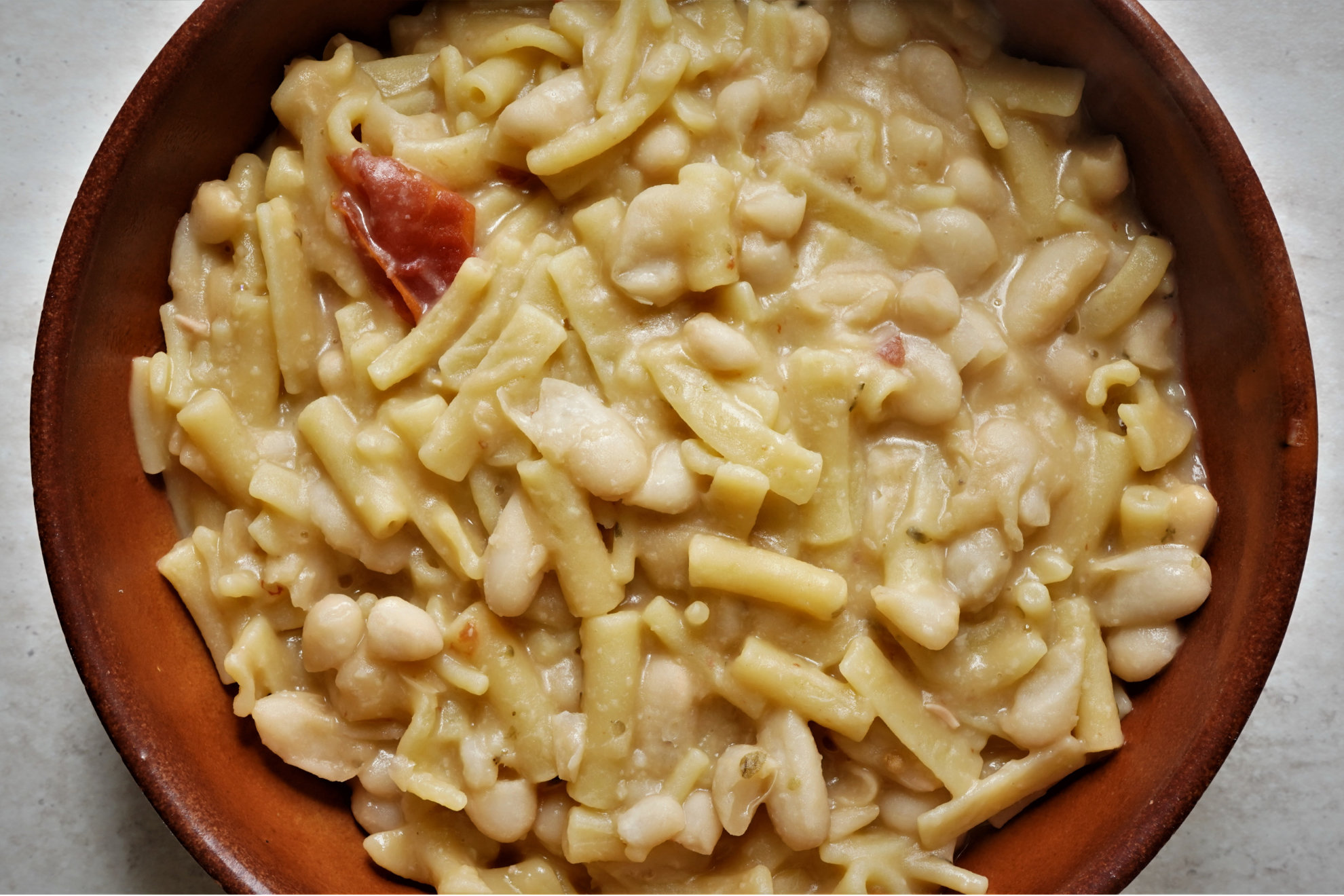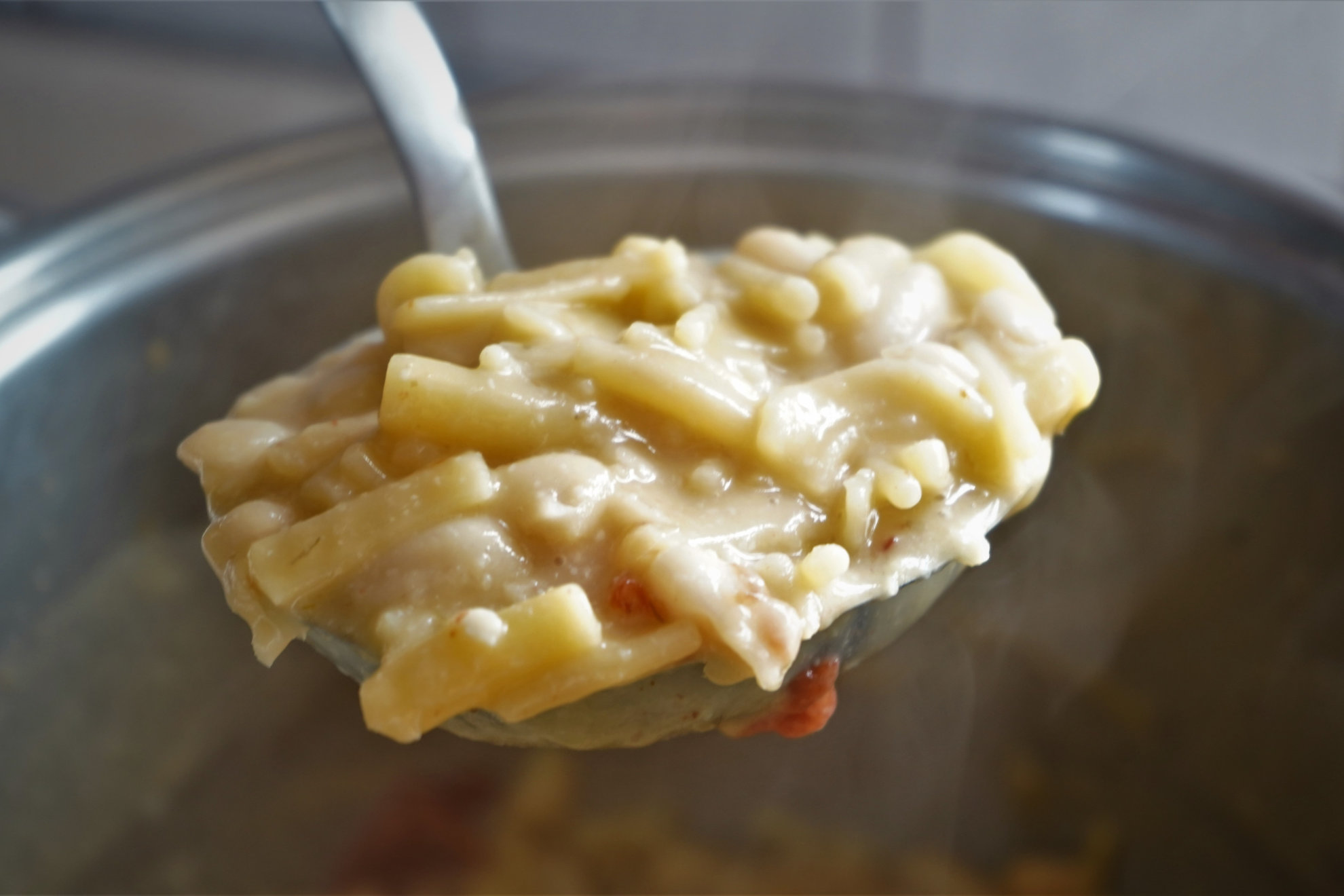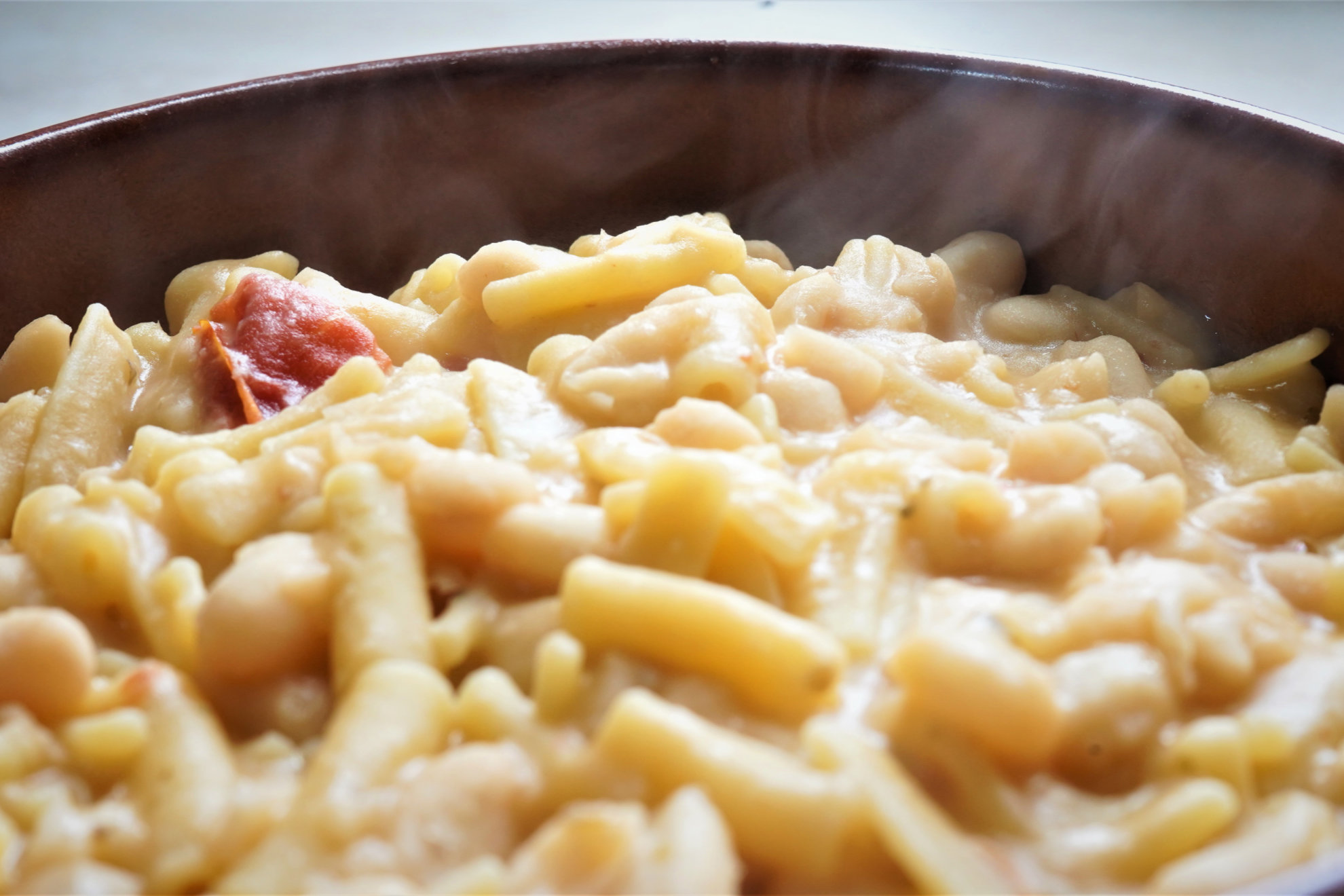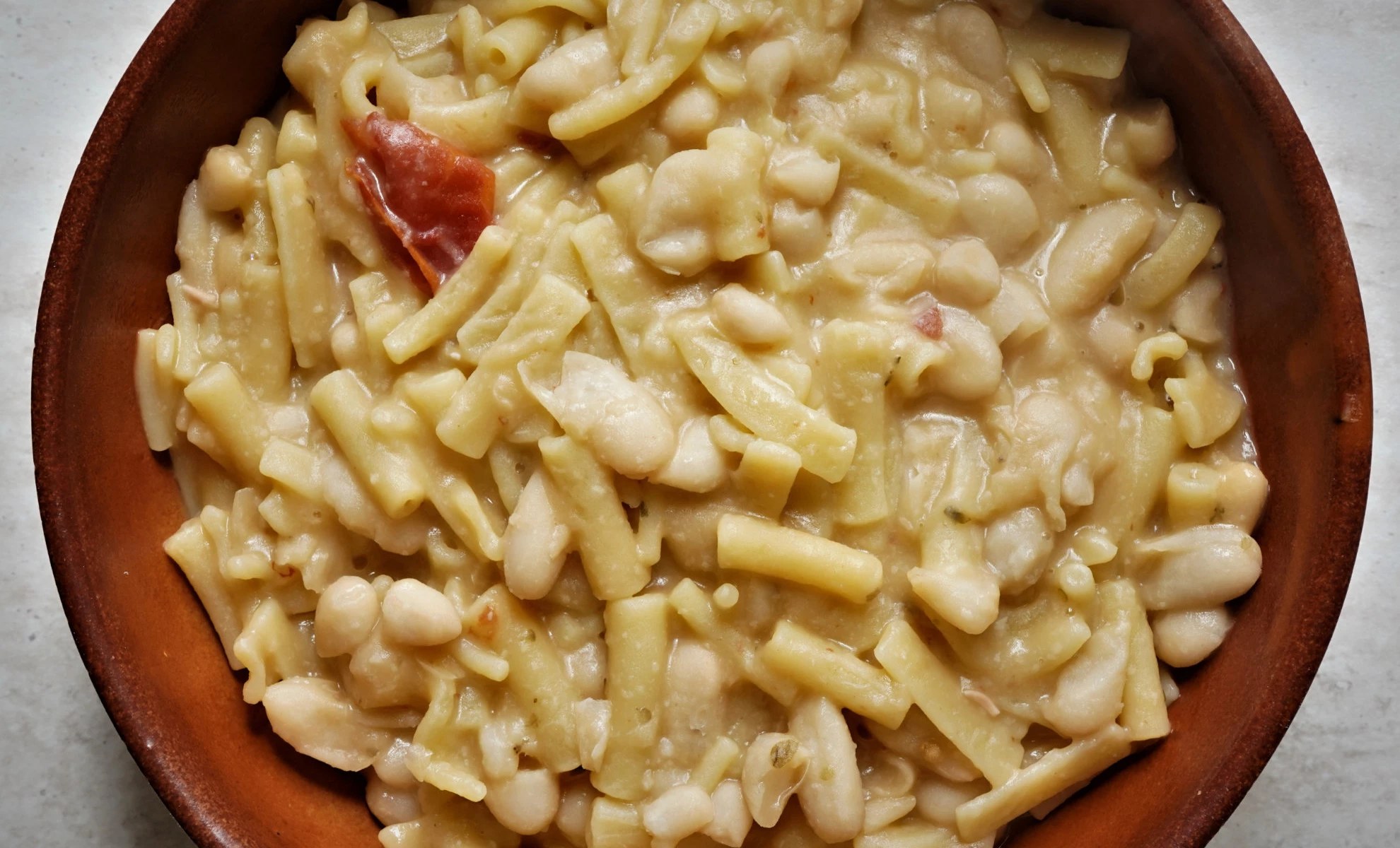Sometimes a name can evoke an absence, rather than indicating something tangible. The maruzzara beans, a recipe from the humble Campania tradition, are an example. Here, in fact, are no “maruzze” - that is snails, in the Neapolitan dialect. Just like it happened in another famous dish of which the playwright Eduardo De Filippo spoke: le vongole fujute (the “fled” clams).
Ph. Enrico Nocera - Trentaremi

The anecdote is a must. The great Neapolitan playwright, very tired after an evening performance in the theater, came back home and dined with the first ingredients found in the pantry: spaghetti, little tomatoes, garlic, parsley and chilli pepper. The flavor of the parsley was so strong and intense that it reminded Eduardo of a plate of spaghetti with clams. But in that dish that evoked them, the clams, however, were not.
Hence the definition of “fled clams”, as Eduardo said. Similarly, the “maruzzara” evokes the name of snails. A very humble food that mostly fishermen ate on boats. The maruzzara beans are so called because the cooking method is identical to that used decades ago for snails: garlic, oil, celery, tomatoes and oregano. And for those who want, a little spicy. That's all.
Ph. Enrico Nocera - Trentaremi

Vittorio Gleijses, journalist and Neapolitan historian, tells us about the recipe in his best-seller “In Naples you can eat this way”, published in 1977: «Cook the beans [...] mince the celery and brown it together with the garlic in the oil [...] add tomatoes, salt and pepper. When the tomatoes are cooked, add the sauce to the beans with part of their water, depending on whether you want a more or less soupy soup». At the end you can add the oregano.
It is a perfect recipe for cold periods spent at sea, warm and nutritious especially if prepared as if it were a soup. Tradition has it that the beans - strictly the white ones, so-called cannellini beans - are put in a plate containing pieces of stale bread, which in contact with the hot soup, becomes soft and tasty (it was “sponged”, as it is said in Naples, using the effective dialectal metaphor of a sponge).
Ph. Enrico Nocera - Trentaremi

In the most recent versions, the pieces of stale bread have been replaced by pasta: tubetti (special kind of pasta similar to little tubes) or even mixed pasta, the so-called “pasta ammiscata” of the Neapolitan culinary tradition. The origin is, however, that of a single dish, solid and rich in proteins, perfect for those who were working well before dawn, among the waves.

